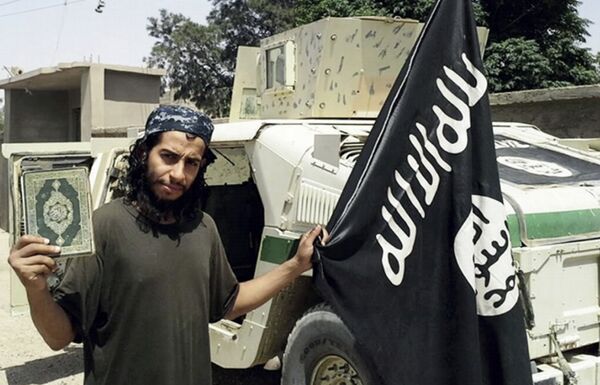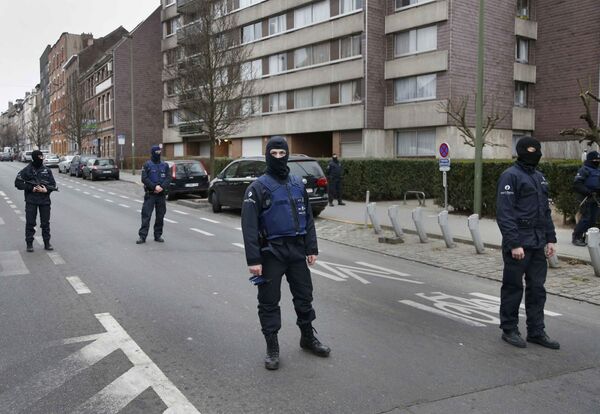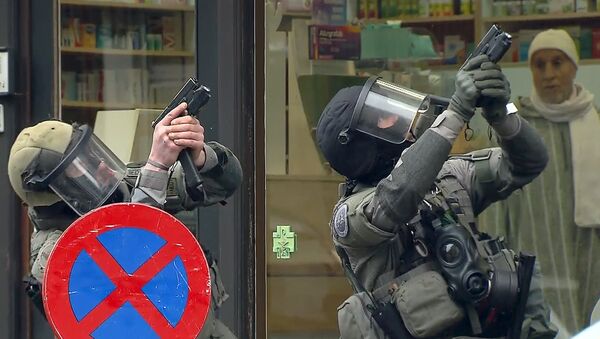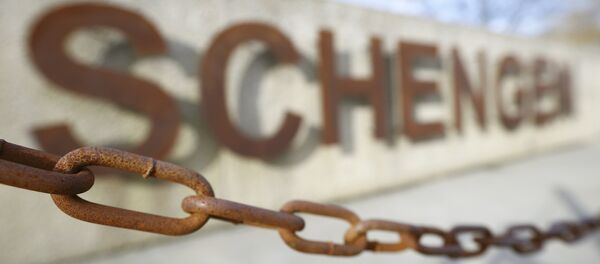Intelligence agencies in Europe faced heavy criticism after it was disclosed that Abdeslam, from Belgium, was known to the law enforcement services yet managed to buy detonators in France using his driving license as proof of identity. The ringleader, Abdelhamid Abaaoud was able to return from Syria several times via the migrant route of Greece without being detected.

Many of the Paris attackers came from — or had links with — the poor district of Molenbeek, in Brussels, which was also targeted by intelligence agencies following the Charlie Hebdo attacks in January 2015.
The mayor of Molenbeek — dubbed a "terrorists' den" because of the sheer number of jihadists living there — in November admitted receiving a list of 80 suspected Islamic militants living in the area. It included Abaaoud, who was killed outside Paris, as well as Salah Abdeslam and his brother Brahim, who blew himself up.

Belgium has been heavily criticized in the French media, since the Paris attacks, with Le Monde newspaper calling it a "clearing house for jihadism" that risks becoming a "nation without a state."
Broad Terrorist Network
Dr Shiraz Maher, Senior Fellow at the International Centre for the Study of Radicalisation and Political Violence (ICSR) at King's College London, told Sputnik in a statement that:
"It is very likely that this attack will have been planned and prepared well in advance of last week's arrest of Salah Abdesalam, one of the central figures in the Paris attacks from last November.
"It therefore points to the existence of a broad and sophisticated terrorist network in Belgium, that extends beyond the one which attacked France last year.
"Our research shows that, per capita, Belgium has the highest number of foreign fighters in Syria of any European country. More than twice as many have gone from there as from France, and more than four times as many as from Britain," Dr Maher said in the statement to Sputnik.
Intelligence Failures
Belgian state broadcaster RTBF — which has seen a copy of a police overview committee report says it had found one "glaring example" of intelligence failings which showed that "even before the Paris attacks, a nom de guerre used by one of the terrorists featured in several (police) databases in Belgium, but not in the central database."
February 2016: A new statistical update on Belgian fighters in Syria and Iraq https://t.co/OGXbh5ogqp pic.twitter.com/BPkhf1tOVj
— Pieter Van Ostaeyen (@p_vanostaeyen) February 2, 2016
The report found that the intelligence services had the Abdeslam brothers on their agenda as far back July 10/11, 2014 when an "informant" told a police officer the willingness of Abdelhamid Abaaoud to recruit young people to carry out an attack.
The report said many of the intelligence failures were "technological" which meant that "certain IT problems were not resolved" and criticized a lack of "qualified personnel."
Open Borders
There was further criticism of the lack of border controls within Europe — under the Schengen agreement — which allowed Abaaoud and his fellow attackers to travel several times between France and Belgium in the run-up to the attacks and — in Abdeslam's case — following the attacks.
What are MEPs' views on @EU_Commission plan for restoring #Schengen? Follow live 4.30pm CET https://t.co/8xadAq8eYg pic.twitter.com/tHyTw4ca9r
— European Parliament (@Europarl_EN) March 21, 2016
It later emerged that French intelligence agents had interviewed a jihadist who had returned from Syria in June 2015 and who said he had met Abdelhamid Abaaoud, one of the November 13 attackers, who killed 130 and injured hundreds more in a series of attacks.
The jihadist told the officers that Abaaoud discussed soft targets in Paris that would involve mass killings. He spoke of "finding an easy target, a concert for example, where there are [a lot of] people. Imagine a rock concert in a European country, if we gave you arms, would you be prepared to fire into the crowd?" he said.
One of the November targets was the Bataclan music venue where most of the 130 people died. Other soft targets were the Stade de France, where a match was being played, cafes and restaurants.
The European law agency director Rob Wainwright told a committee of European lawmakers in late November 2015 that the EU-wide database for sharing details of known jihadists between intelligence agencies in order to disrupt plots — the Focal Point Travelers system — had weaknesses.
"We are only confident we have 2,000 names in the system, even though the general assessment across Europe is there are at least 5,000 European nationals who have traveled to Syria and Iraq," he told a committee of MEPs.





